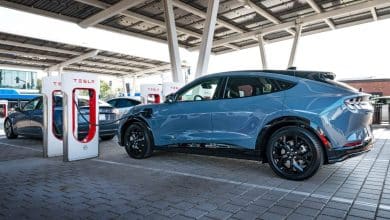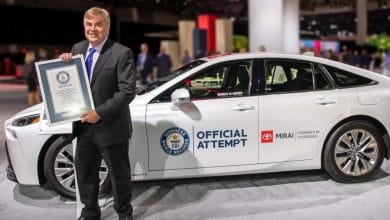
A little over a year ago, the Biden Administration adopted the Inflation Reduction Act (IRA), a new law that promotes the development and production of green energy in the United States. It includes an industrial strategy, a climate plan and a social justice section. It also relies on protectionism since theIRA provides generous tax credits to foreign companies that decide to set up operations in the United States rather than export their products or components there.
However, a new provision of this law, which came into force on 1er last January, significantly changed the number of electric vehicles eligible for the $7,500 tax credit. This change came at the request of Senator Manchin, the West Virginia Democrat. He had expressed concerns that American taxpayers were subsidizing Chinese-made electric vehicle components, including batteries.
The new law reinforces the protectionist measure targeted by the act and excludes from the $7,500 tax credit electric vehicles that use battery components manufactured by Chinese companies.

Much fewer eligible vehicles
This change greatly reduces the number of vehicles that benefit from the federal tax credit. According to the site fueleconomy.gov there would only be 8 eligible electric models left: the Chevrolet Bolt EV and Bolt EUV, the Ford F-150 Lightning, the Rivian R1S and R1T as well as certain Tesla vehicles, the Model 3 Performance, the Model X Long Range, the Model Y AWD, RWD and Performance, in particular.
The list of eligible vehicles included around twenty with this change. The scratched models are the Cadillac Lyriq, Chevrolet Blazer EV, Silverado EV and Equinox EV, Ford E-Transit, Mustang Mach-E, Nissan LEAF, Volkswagen ID.4 and Tesla Cybertruck. Some other variants of Tesla vehicles are also in the list, including the base and AWD Model 3.
The new rules from the Treasury Department therefore target battery components manufactured by companies subject to Chinese jurisdiction or owned at least 25% by the Chinese government. In 2025, restrictions will expand to include suppliers of key raw materials for batteries, including minerals like nickel, lithium and cobalt.

Conclusion
With his Inflation Reduction Act, President Biden’s goal is to create a supply chain independent of Chinese suppliers. Even though it is a protectionist measure, it has already had positive effects in Canada since it will have influenced to a certain extent the signing of several raw material supply agreements in Canada for the manufacture of batteries.
On the other hand, certain companies will have every advantage in establishing or developing in the United States because of the financial incentives, which is why several stakeholders believe that the Canadian government must also adopt a plan help.











